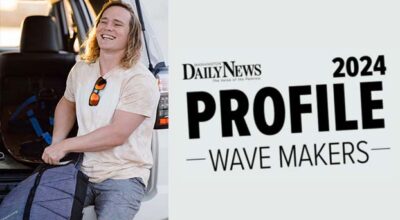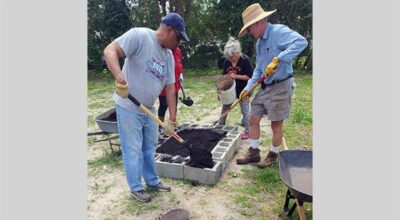Candidates discuss roads-funding plan
Published 5:26 pm Friday, October 17, 2014
Five candidates for the N.C. General Assembly presented their views on several issues during a forum Thursday night at Beaufort County Community College, with those views, for the most part, following along party lines.
The forum, sponsored by the Beaufort County Republican Party and the Beaufort County Democratic Party, featured candidates for state Senate District 1, state House District 6 and state House District 3. They included incumbent state Sen. Bill Cook, a Republican representing Senate District 1; incumbent state Rep. Michael Speciale, a Republican representing House District 3; Whit Whitley, the Democrat challenging Speciale; incumbent state Rep. Paul Tine, a Democrat representing House District 3; and Mattie Lawson, the Republican challenging Tine. Democrat Stan White, who is challenging Cook, did not attend because he had a previous commitment to attend another forum in District 1.
At the beginning of the forum, Beaufort County resident Bartow Houston read a statement prepared by White.
Candidates responded to questions submitted by the two political parties and audience members.
One question focused on the candidates’ views on the state’s news transportation funding plan and how it would affect eastern North Carolina. Supporters say it’s a more equitable formula. Critics say it shortchanges the eastern part of the state in favor of the state’s more-populated areas such as Raleigh and Charlotte.
“The new transportation plan hasn’t had time to work. We just implemented it. I’d say no I don’t think it’s had a negative impact just yet. We haven’t had time to see how it’s going to work. Let’s give it some time and see what happens on it,” Speciale said. “What it’s designed to do is take the politics out of the roads — who’s the most powerful legislator up there, who can get his road fixed. That’s not the way it’s supposed to work.”
Speciale said the new plan is a more honest system.
“The new transportation plan is probably one of the worst things that has ever happened to eastern North Carolina, and I will tell you why. I’ve sat on the joint transportation oversight (committee) for the last two years. They’ve created a new pot of money. It’s a statewide bucket. In order to do that, we’ve all lost. Every division in this state lost money; every region in the state. What northeast North Carolina lost … we lost half a billion dollars over the next five years to make room for new roads that are really going to be built in the hot pockets (of the state),” Tine said.
The Dare County Democrat said eastern North Carolina would suffer under the new plan.
“I agree that if you’re representing eastern North Carolina, you should not have voted for this new transportation formula because it puts us at a gross disadvantage compared to our urban counterparts in Raleigh and Charlotte. The reason is now it becomes more important about congestion and traffic. So, whenever we compare our roads to Raleigh and Charlotte, we’re going to lose. This is one reason that we’re hearing about this new bond (proposal) the governor has come up with because he saw across the state that their rural areas’ highways that had been on the list were coming up short. … The (proposed) bypass around Havelock came up way short on this priority list,” Whitley said.
Whitley said he’s concerned the new plan will make counties more fiscally responsible for maintaining/building secondary roads.
“I think the new transportation plan is a step in the right direction. We need to get politics out of making choices that affect, directly affect, our lives. The goal is to try to judge projects on their individual merit. I don’t have any problem with that. … I think, however, the formula we ended up with doesn’t help the east. We could have done better, and we will. Nothing’s set in stone with that thing. I’m going to be proposing some changes as time goes on. I want to be able to better recognize the east,” Cook said.
Cook said something must be done to alleviate traffic congestion on roads that bring visitors to the Outer Banks and. “I don’t think the formula properly reflects that now,” he said.
“There’s any interesting word in that question. It has to do with fair. Is it fair? Does that mean that every area gets exactly the same amount of money? Does that mean that people are not being treated appropriately? Fairness is a hard word to define when your talking about highway systems. What I would like to know is if this is not the best way to allocate our resources for transportation, what’s the alternative? This is an issue that’s been bounced back and forth for many years. … There are a lot of needs in our transportation area that need consideration over and beyond whether or not we’re being treated fairly. I would look to seem some other alternative. If there’s another plan, let’s look at it,” Lawson said.
Lawson said she expects the new plan to be modified so it become more equitable. “It’s not something that’s cast in concrete,” she noted.
For additional coverage of the forum, see future editions of the Washington Daily News.





